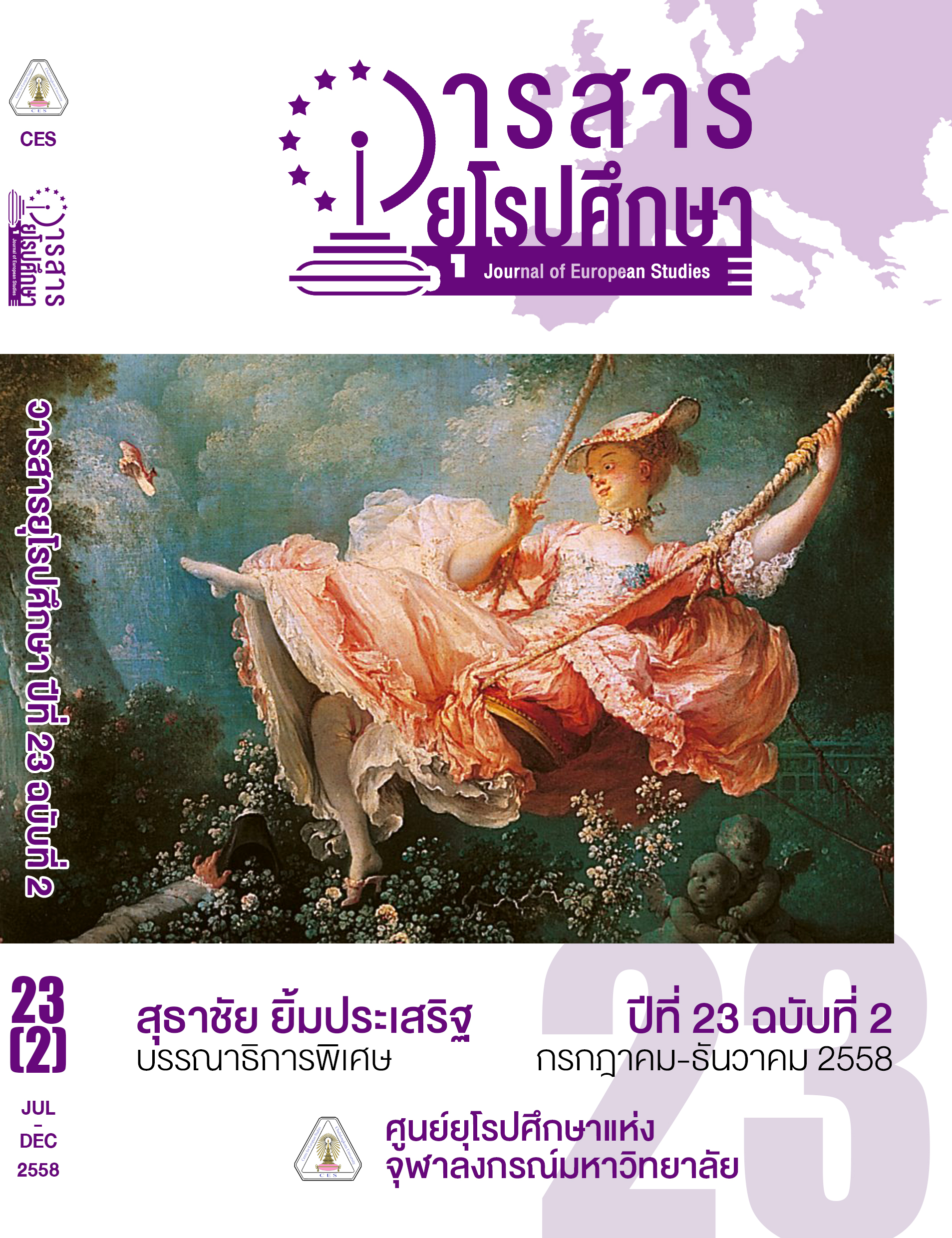‘Of fine shops and fine shows’: Rethinking Shopping for Pleasure in Eighteenth-Century England
คำสำคัญ:
อังกฤษในคริสต์ศตวรรษที่ 18, สังคมผู้บริโภค, บริโภคนิยม, ช้อปปิ้ง, ความหมายทางวัฒนธรรมบทคัดย่อ
นักประวัติศาสตร์มีความเห็นตรงกันว่าอังกฤษในคริสต์ศตวรรษที่ 18 มีลักษณะเป็นสังคมผู้บริโภคซึ่งให้ความสำคัญแก่การบริโภคในฐานะที่เป็นความอภิรมย์มากกว่าความจำเป็นพื้นฐานของชีวิต วัฒนธรรมการช้อปปิ้งได้รับการสำรวจและศึกษาอย่างกว้างขวางโดยนักประวัติศาสตร์วัฒนธรรมและนักประวัติศาสตร์ธุรกิจ นักประวัติศาสตร์เหล่านี้ได้นำเสนอข้อมูลว่าด้วยบทบาทของมโนทัศน์เรื่องความสุภาพในฐานะที่เป็นกรอบสำคัญในการกำหนดแบบแผนการช้อปปิ้งในคริสต์ศตวรรษดังกล่าว และมีบทบาทอย่างสำคัญในการทำให้การซื้อขายสินค้าเป็นกิจกรรมความบันเทิงในรูปแบบหนึ่งขึ้นมา ข้อเสนอว่าด้วยการช้อปปิ้งเพื่อความบันเทิงนับเป็นข้อเสนอหลักในงานประวัติศาสตร์นิพนธ์ตลอดมา บทความนี้ประสงค์จะทบทวนข้อเสนอดังกล่าวโดยใช้วิธีวิทยาการตีความทางชาติพันธุ์วรรณนา บทความศึกษาความสัมพันธ์ระหว่างการช้อปปิ้งกับมโนทัศน์เรื่องความสุภาพ วิเคราะห์ความหมายทางวัฒนธรรมของถนนช้อปปิ้งและบทบาทของพิธีกรรมการช้อปปิ้งในการสร้างตัวตนของสุภาพชนทั้งเจ้าของร้านค้าและลูกค้า เนื่องจากความเป็นสุภาพชนมักถูกสังเกต ศึกษาและประเมินค่าโดยบุคคลในย่านธุรกิจการค้าด้วยกันเอง บทความนี้จึงเสนอว่าการช้อปปิ้งมีความสำคัญแก่สุภาพชนในสังคมอังกฤษสมัยคริสต์ศตวรรษที่ 18 ในฐานะเป็นโรงเรียนชีวิตสำหรับเรียนรู้และพัฒนาพฤติกรรมอันสุภาพของตนเอง การช้อปปิ้งมีนัยความหมายทางวัฒนธรรมที่มากกว่าการเป็นกิจกรรมความบันเทิงยามว่างเท่านั้น



